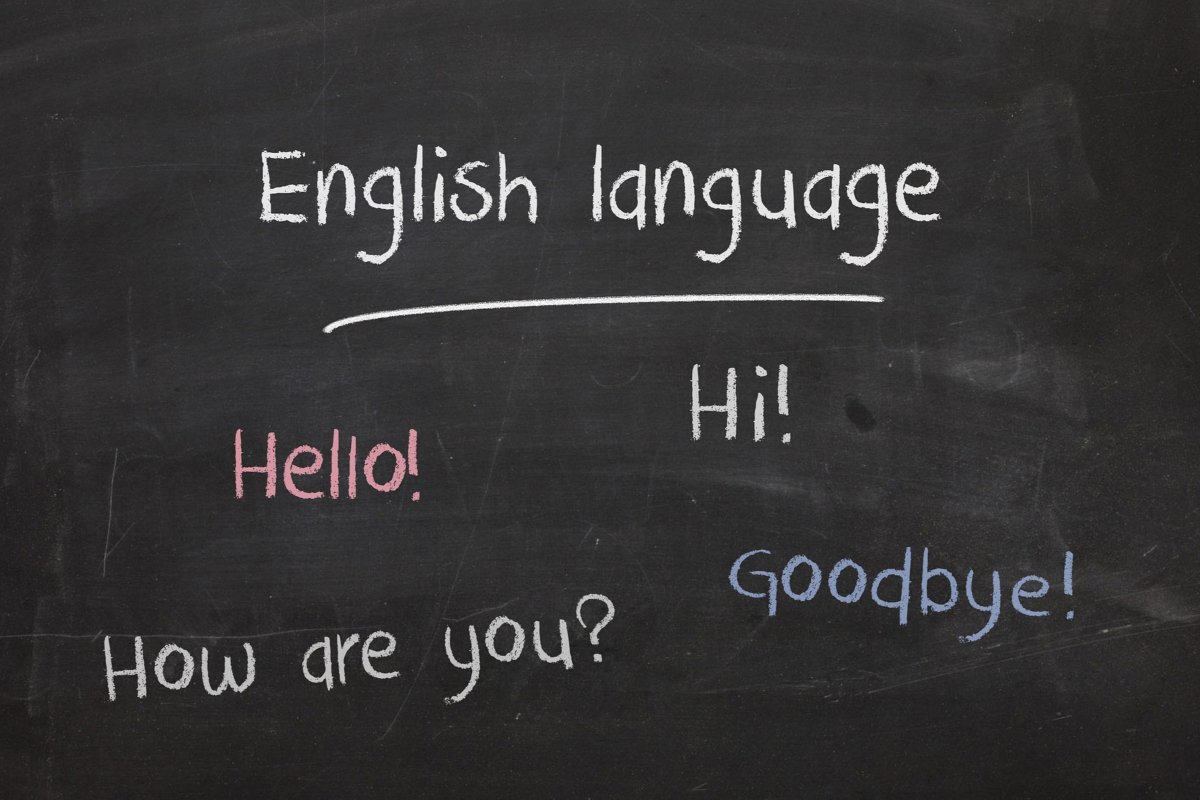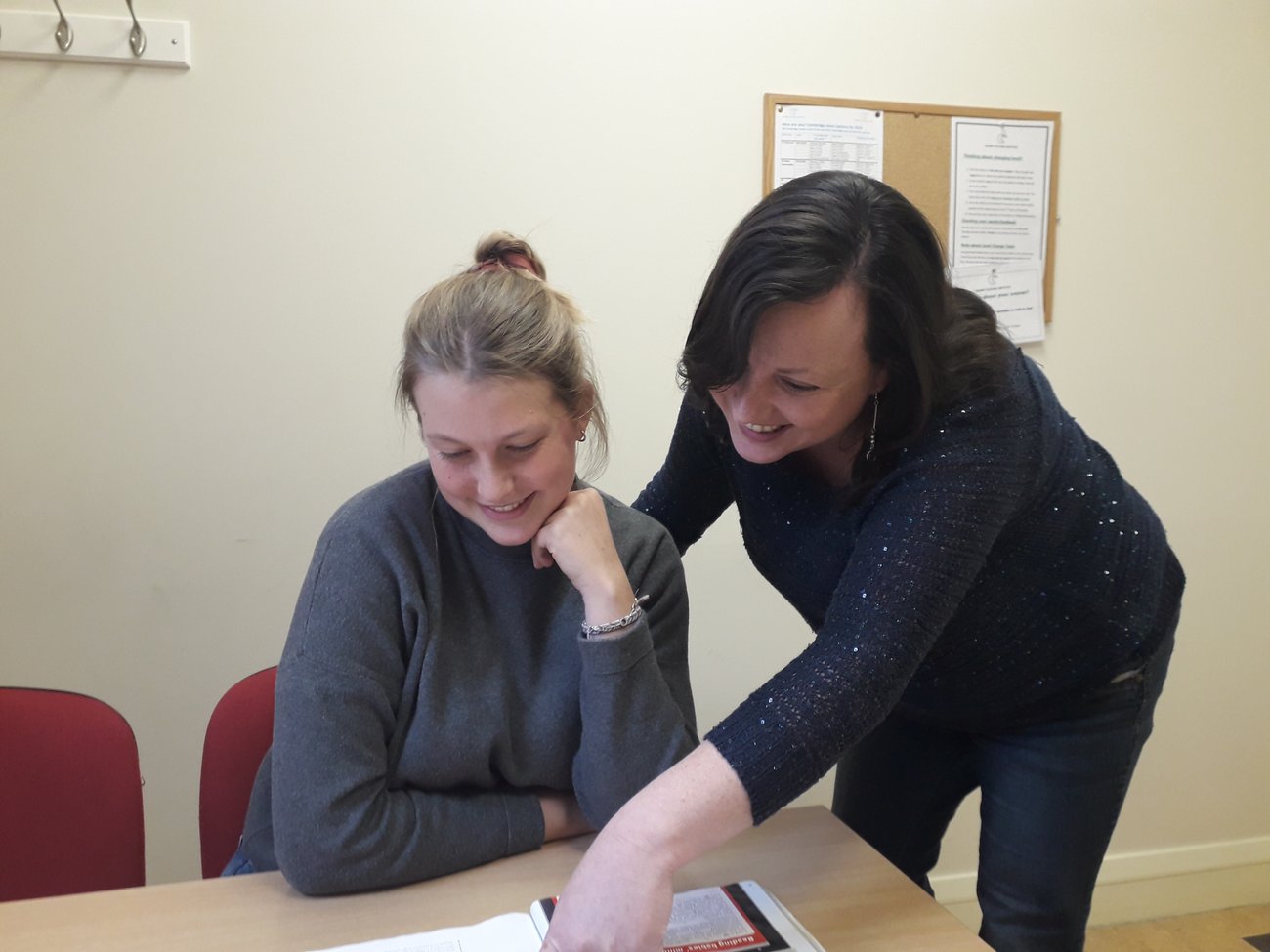IELTS Exam Preparation in Galway, Ireland | GBS & English School
English exam preparation courses are specific programmes of study to get you ready for success, whether it’s an IELTS or a Cambridge exam you’re taking.
 Book now
Book now
English Language
Posted 10 April 2020
Websites, apps, boxsets, movies, books… English is all around us whichever country we live in. It’s so ubiquitous that most people, regardless of where they’re from and what their first language is, pick up a certain amount whether they want to or not.
But while it’s usually easy to find opportunities to practise English, is it a difficult language to learn?
Cristina, one of our English teachers, says: “Languages that are similar either in origin (e.g. German, Dutch) or structure (e.g. Japanese) give their speakers an advantage, while speakers of very different languages, such as Turkish, Mandarin, Cantonese, and Korean will find it harder.”
“I’d probably score English as around 6/10 for difficulty,” says Karla, who is from Mexico and studies general English here at Galway Cultural Institute.
“While some languages like Japanese, Chinese and Russian are notoriously tricky, and throw up plenty of challenges for those trying to master even the basics, English seems to be a bit easier. At least at the stage when you’re learning the basics. Maybe it gets more difficult once you start to learn about phrasal verbs and all the idioms.”
So let’s take a closer look. What are the English grammar rules that make it a difficult language to learn? We asked our students and teachers to find out.
Read on for tips on the most challenging aspects of learning English grammar – or jump to our English courses page if you’d like to browse the study options.
What General English courses are available?
Find out moreWhy Some English Words are Difficult for Students
Read the blog‘Auxiliary’ means to provide support, which is what these verbs do: they help the main verb. They can be especially difficult for beginners, who are just building up their knowledge of English verbs and how they work.
Daniel, a student at Galway Cultural Institute says: “Auxiliary verbs can be tricky and there are lots of them so there’s a lot you need to become familiar with and remember. It’s easy to get confused with them, such as when forming questions.”
These are some examples of auxiliary verbs in use:
“Do you know where it is?”
“I have been studying hard.”
“I should offer to help.”
Other examples of auxiliary verbs include:
How to use the verb GET | English Lessons
Read moreEnglish Exam Preparation: Find your perfect course
Read moreSubject and verb agreement seems like it should be simple:
“The dog is in the park.”
“The dogs are in the park.”
Galway Cultural Institute English teacher Kenneth says: “In English there are some situations where learners, especially beginners, have trouble identifying the subject in the sentence that the verb needs to agree with. In fact, there are plenty of native speakers who make mistakes with verb-subject agreement too!”
When you use the words ‘here’ and ‘there’ in a sentence, the word order can complicate the agreement of subject and verb:
“There is a dog in the park”
“There are dogs in the park.”
“Here is the dog that was in the park.”
“Here are the dogs that were in the park.”
The verb agrees with the subject, which is ‘dog’ or ‘dogs’. ‘Here’ and ‘there’ can never be used as subjects.
Other instances where subject-verb agreement is more difficult include:
Improving my English skills from advanced to truly fluent
Read our blogTalk to our friednly team today
Contact us
GCI English Grammar
“Lots of people taking our general English courses make mistakes with their verb patterns – it’s common error at beginner and intermediate level in particular,” says English teacher Jillian.
English learners need to grasp that while some verbs can be used on their own others always need something else – whether a clause, other verbs, an object, or an object and preposition.
For example:
On its own: “She sang.”
Followed by a clause: “You told me that she was a good singer.”
Followed by another verb: “I prefer shouting.”
Followed by an object: “We loved it.” Followed by an object and a preposition: “He took it from the shelf.”
Study English for Academic Purposes in Ireland
Find out moreAt beginner and intermediate level, most people have some problems getting used to the different tenses in English.
“Perfect tenses can be hard to get right – knowing whether it’s the present, past or future perfect in a given sentence,” says English student Julia.
Present perfect: “I have seen it.”
Past perfect (also called pluperfect): “I had seen it.”
Future perfect: “I will have seen it.”
Other tenses that tend to throw up challenges are:
Past simple: “I saw it.”
Conditional: “If it comes out, I will see it.” / “If it came out, I would see it.”
Infinitive: “I decided to see it.”
Gerund: “Tell me before seeing it.”
Phrasal verbs are very common in English, and especially in conversation. Essentially, they are just phrases that combine a verb with a preposition or an adverb. By combining these elements, you can say so many more things!
However, they can be difficult, not only to remember, but also because the meaning of a phrasal verb can be completely different to the meaning of the verb when it’s used on its own.
For example:
“Go ahead.” (Feel free to start or proceed.)
“Cheer up.” (Feel better.)
“Hang out.” (Spend time with someone.)
English teacher Steven says: “Ask any intermediate student which areas of the language they find difficult, and they’re likely to mention phrasal verbs. They’re well known for being challenging for English learners. It’s really a vocabulary issue.”

Jillian, GCI Teacher and Flavia, Swiss student
“For advanced English learners, the sheer vastness of the vocabulary can become an issue,” says English teacher Karen.
There are 171,476 words in use in the English language (and a further 47,156 obsolete words), according to the 1989 second edition of the Oxford English Dictionary.
English has grown by absorbing parts of other languages such as Latin and French, as well as through the discovery of new ideas and the evolution of slang. New words are added to the dictionary each year so the current number of words in usage is likely to be even higher.
Although there are languages with even more words, this is still a huge vocabulary list for learners to become familiar with.
“It’s not just knowing a word exists – it’s using it in the correct context that can be so challenging.”
“The incorrect use of prepositions is very common among English learners, even advanced ones, for whom these errors may have become fossilised,” says English teacher Dan.
‘Fossilisation’ in language learning is what we call it when you get into the habit of making a particular mistake – so much so that it becomes very hard to change.
Here are some typical examples of prepositional use errors:
Incorrect: “The delivery got there just on time.”
Correct: “The delivery got there just in time.”
Incorrect: “It depends from the time.”
Correct: “It depends on the time.”
Incorrect: “This newspaper says something different than that one.”
Correct: “This newspaper says something different from/to that one.”
Incorrect: “That’s the difference of taking classes and not taking classes.”
Correct: “Different between taking classes and not taking classes.”
So, there you have it: seven grammatical quirks of the English language that make it tricky to learn.
Leave a comment and let us know!
Here at Galway Cultural Institute, you can choose from a variety of English language courses for international students.
Browse and find full details of our general English courses here.
Here you can get more information about our one-year study abroad programmes, or taking a summer course in Galway.
Please contact us if you’d like to speak to someone and ask any other questions!
Study English in Galway
Explore more English courses